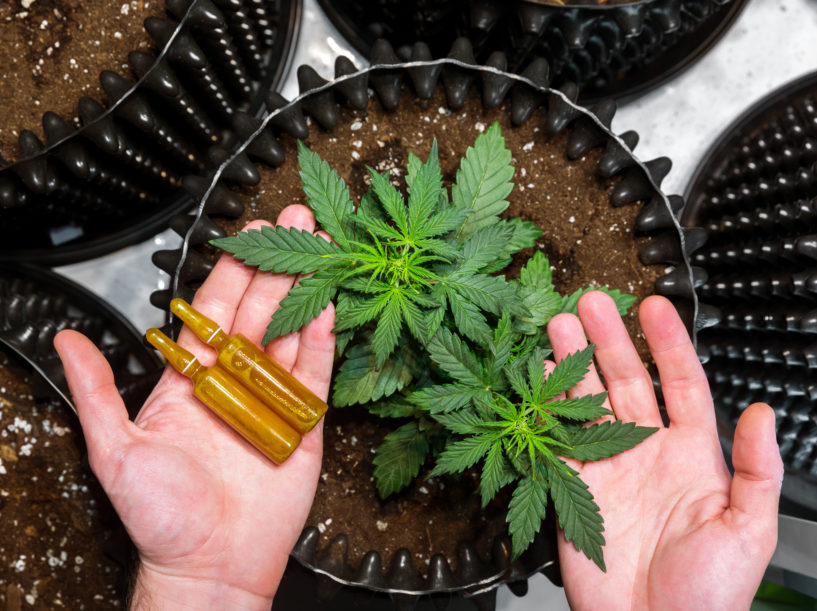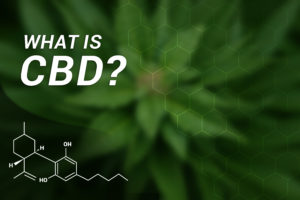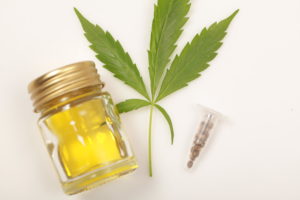
 CBD products are taking the world by storm. However, CBD is a unique chemical that has a murky legal status, confusing customers and merchants alike. To make matters more complicated, there are lots of misconceptions about what CBD is and what it all means for payment processing and retail sales.
CBD products are taking the world by storm. However, CBD is a unique chemical that has a murky legal status, confusing customers and merchants alike. To make matters more complicated, there are lots of misconceptions about what CBD is and what it all means for payment processing and retail sales.
Here we’ll demystify CBD itself, and then tell you what you need to know about processing payments for merchants that sell CBD-based items like tinctures, gummies, vape pens, vape oil, and other CBD oil products.
What is CBD?
Short for Cannabidiol, CBD is a chemical compound extracted from the cannabis plant. When you ingest it, however, it doesn’t get you high. The cannabis high is caused by the ingestion of THC, which is an entirely different compound than CBD. Both THC and CBD work with the brain’s cannabinoid receptors, but to a very different effect.
Once CBD is extracted from cannabis, this naturally-occurring substance is then incorporated into products like oils, tinctures, edible snacks, baked goods, even creams and lotions with supposed anti-inflammatory effects.
It’s different from medicinal marijuana, because medicinal marijuana is just like the kind you buy on the street. That is, it alters your perception. CBD takes its effect without intoxicating you. Both CBD and THC are cannabinoids, which means they are chemicals taken from the hemp plant. However, there are different effects and legal implications regarding different cannabinoids. That’s where people start getting confused.
takes its effect without intoxicating you. Both CBD and THC are cannabinoids, which means they are chemicals taken from the hemp plant. However, there are different effects and legal implications regarding different cannabinoids. That’s where people start getting confused.
Even though it doesn’t get you high, consumers find that CBD seems effective for a variety of ailments. While limited scientific research means there’s still much to be learned, people use CBD for everything from chronic pain and post-traumatic stress disorder to multiple sclerosis and Alzheimer’s disease.
Processing CBD Industry Payments
Because of its association with marijuana, the CBD industry has faced challenges when it comes to accessing financial services. Banks, payment processors, merchant accounts, and other institutions have been hesitant to offer services to companies selling a product that still has a murky legal classification.
This provides potential opportunities for other companies to step in, however. This section will get into some of the complications with processing CBD industry payments, and some of the solutions CBD companies have figured out.
Hemp and Banking
 Hemp and cannabis are often confused, and with good reason: there are strains of the cannabis sativa plant that can be grown without THC…that is, they don’t get you high. These plants fall into the category of industrial hemp.
Hemp and cannabis are often confused, and with good reason: there are strains of the cannabis sativa plant that can be grown without THC…that is, they don’t get you high. These plants fall into the category of industrial hemp.
Once hemp is harvested, there are hemp products called hemp oil and hempseed oil that can be made from it that are often sold legitimately. Sometimes, however, they are disguised as CBD oil, despite containing no CBD. They are sold as dietary supplement called “CBD Hemp Oil,” or under a similar name. But because the industry is still unregulated, product labels are often deceptive.
Regardless of where the plants end up, non-THC containing hemp plants are legal to grow. Since it isn’t a controlled substance, there shouldn’t be any legal issues associated with growing it and using it to make products like hemp oil. However, financial institutions are notoriously conservative and always err on the side of caution. Hemp is no different, and the fact that there’s still lots of confusion on the hemp vs. cannabis, THC vs. CBD question. Hence, the industry is facing lots of resistance when merchants try to find payment processing services.
There is another factor to the resistance, however. Since many CBD and hemp-based products make medical claims, the industry is considered high-risk. This is because of a lack of clinical trials or FDA approval for any claims that CBD can be used to treat disease. Without a stamp of approval from the FDA, the industry will remain high-risk. And as with all high-risk industries, it is harder to find financial partners. Once CBD companies do find a payment processor and bank, there are often higher fees associated with doing business.
Using Square for CBD Company Payments
Square is one payment processing and merchant services company that is taking the plunge, offering select CBD merchants an invite-only chance to  beta test a payment processing solution for CBD sellers. It’s a huge opportunity for them that could come with pitfalls, but also the chance to fill a need and corner a rapidly-expanding market. The forward-thinking approach could pay off hugely for Square.
beta test a payment processing solution for CBD sellers. It’s a huge opportunity for them that could come with pitfalls, but also the chance to fill a need and corner a rapidly-expanding market. The forward-thinking approach could pay off hugely for Square.
Final Thoughts
For a natural product with none of the inebriating effects of THC, CBD could hold great promise. As the CBD industry expands and matures, more legal clarification will develop regarding its status. There will likely also be more clinical trials showing whether or not CBD has health benefits like easing anxiety, reducing pain, and powerful anti-inflammatory properties. As a result, payment processors, banks, and other financial institutions will become more willing to offer services.
In the meantime, forward-thinking innovators like Square are getting a head start. CBD doesn’t look like it’s going away anytime soon, so the only question is, how long will it be until banks start treating it as a mainstream industry with a moderate risk profile?
 No one knows for sure, but when they do, the industry will have an opportunity to expand faster than ever. And as more states legalize THC itself, there will be a whole new flood of cannabis products on the market with merchants in need of payment services. As the cannabis plant gains further acceptance, doing business in the industry will become easier and easier.
No one knows for sure, but when they do, the industry will have an opportunity to expand faster than ever. And as more states legalize THC itself, there will be a whole new flood of cannabis products on the market with merchants in need of payment services. As the cannabis plant gains further acceptance, doing business in the industry will become easier and easier.
Latest Posts
March 4, 2020
February 27, 2020
CATEGORIES

